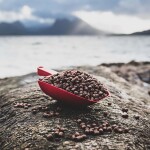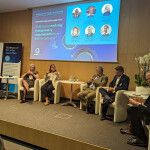SeafoodSource is closely following seaweed innovation by compiling a regular round-up of updates from the sector.
- Kelp has made its way into discussions on investments into carbon offset trading, a study published in Hakai magazine has found.
The study, “Capturing Carbon with Seaweed: What We Know, What We Don’t, and What We’re Totally Unsure About,“ found certain seaweed has begun to catch investor attention for its ability to grab and store carbon.
“There’s still a lot that needs to be done,” Deakin University Researcher Finnley Ross said. “It’s definitely a big research gap.”
The study noted seaweed farming could have larger potential ecosystem-level impacts, finding if kelp is harvested at an industrial scale, it could potentially plunder nutrients from the ocean and stunt the growth of photosynthesizing phytoplankton.
“We urgently need methods that can remove carbon dioxide from the atmosphere,” University of Tasmania Catriona Hurd said. “We need to get it right because we have a serious problem to fix.”
- Oban, Scotland-based seaweed startup OCEANIUM announced it has processed approximately 79 MT of seaweed thus far in 2023.
“OCEANIUM is now producing volumes of our innovative and functional seaweed-based ingredients for food, health, skincare, and materials to meet market demand for clean-label ingredients while also benefiting people's health and ocean health,” the company said in a release. “The predictable and repeatable results of Ocean Health Fiber, a dietary fiber for plant-based meats, breads, and soups, plus the high-purity, marine bioactive Ocean Actives Fucoidan for health and skincare has confirmed our successful journey from lab-scale to large pilot-scale production."
- West Pubnico, Nova Scotia, Canada-based LeBlanc Seeded Lines has been operating one of the smallest aquaculture operations in the province out of aquaculture specialist Charlene LeBlanc’s garage, according to CBC Canada.
LeBlanc operates a small-scale kelp hatchery from an ad-hoc hatchery which she began in a cooler. Now, the tank can produce thousands of feet of seeded line for kelp production. She coaxes microscopic kelp spores from wild algae’s reproductive tissue, and attaches them to twine.
"It's a lot like Christmas – I can't wait to check," LeBlanc said. "I still have to tell myself, 'OK, it's only been a day. Let's give it another day to see if it's changed.'"
Photo courtesy of OCEANIUM







